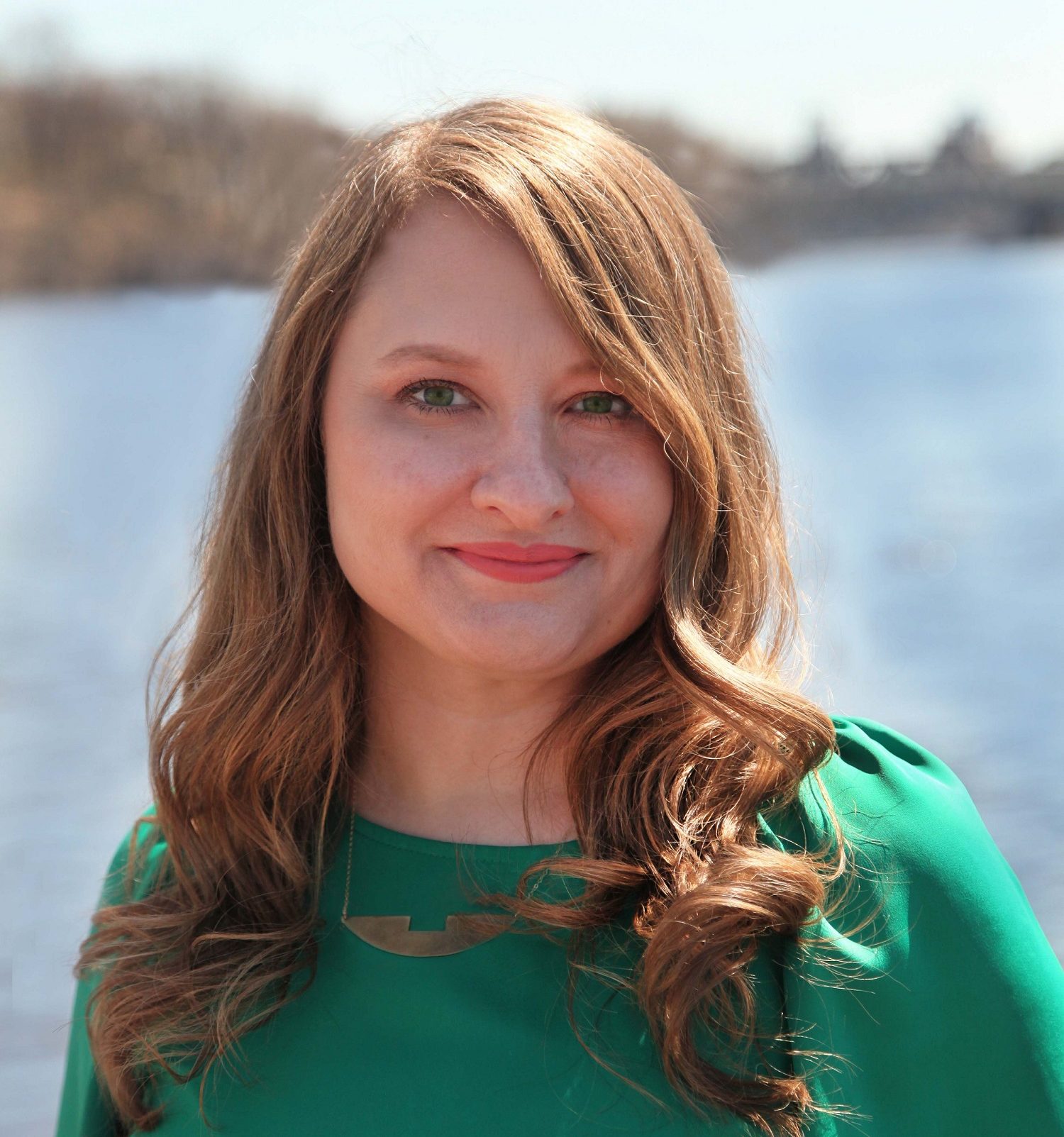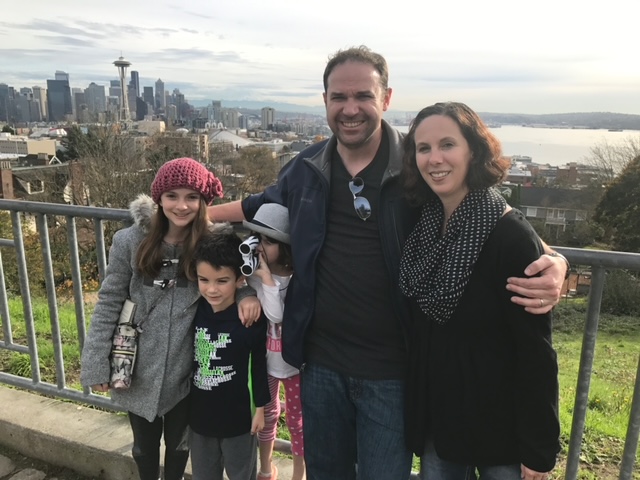Natasha Daniels has been helping the parents of kids with OCD and anxiety navigate the ups and downs of life, from toddlerhood to the teenage years, for most of her career. Now, following the unexpected death of her husband, she’s writing and talking about grief and how to work through it both as a grieving spouse and the parent of three grieving kids. Natasha has dedicated herself to helping others, and we are lucky to have her in our community! Thank you, Natasha!
Through your resources in AT Parenting Survival, you offer a wealth of support for parents of children with OCD and anxiety: the AT Parenting Survival School, AT Parenting Community, AT Parenting Survival Podcast, and YouTube Channel on Anxiety & OCD. What inspired you to start AT Parenting Survival? What can parents expect when they engage with your resources?
I grew up in a home where my father’s mental health struggles with bipolar and psychosis dominated my childhood. Suicide attempts, psych hospitals, and therapy sessions were all a part of our life. I went into the mental health profession with a hope that I could make an impact in what felt like a broken system.
My own anxiety issues were morphed by the enormity of my father’s struggles. I went to graduate school with the hope of helping other people like my dad, but found myself gravitating toward helping anxious kids, more similar to myself.
I eventually created a child therapy practice solely focused on anxiety and OCD. A few years later I had my own three children who all showed signs of anxiety and OCD.
Ten years after I started my private practice, I stumbled into creating AT Parenting Survival. I had written my first book, How to Parent Your Anxious Toddler. I had gotten an email from the publisher talking about the need for a strong “platform.” I realized very quickly that I didn’t know what a platform was, nor did I have one! So I created a website called Anxious Toddlers.
It was soon afterward that I realized how fulfilling it was to be able to help parents on a global scale. Over the next few years my website shifted from being about toddlers to being about anxiety and OCD for kids and teens. There was such a strong need for parents to get support raising kids with anxiety or OCD. So many parents felt isolated and alone. I got this on a professional and personal level.
I now offer parents raising kids with anxiety or OCD support through my weekly podcast and YouTube videos. The podcast is to support parents and the YouTube videos are to help kids and teens directly.
I also took all the skills I taught in my therapy practice and created easy-to-digest online video courses on anxiety and OCD. After that parents asked if I could create more in-depth support. That is when I developed a membership called the AT Parenting Community. In the AT Parenting Community members get weekly live classes, Zoom support group calls, as well as direct access to my support.
What is the most common question you get from parents with kids who have OCD or anxiety?
One of the most common questions I get from parents is what is the difference between anxiety and OCD? So many kids with OCD are misdiagnosed with anxiety. As parents start to dive into my resources they also learn about OCD. Sometimes the more they learn, the more they realize their child has been given the wrong diagnosis.
You’ve written several books for kids and teens about anxiety, social skills, kindness, and, most recently, grief. Can you tell us more about The Grief Rock: A Book to Understand Grief and Love?
In 2021 my husband died suddenly of a blood clot. This turned our world upside down. How do you help kids understand how their dad can be fine one day and gone the next? Besides getting them into a grief group right away, I scoured the internet for the best children’s books on grief. Nothing quite hit the spot.
My kids needed help navigating grief itself. Grief is a beast. It knocks you off your feet when you least expect it. It impacts your ability to eat, sleep, and function. It impacts how others treat you.
My nine-year-old daughter was outwardly struggling. She would unexpectedly burst into tears. She lost several friends who said she wasn’t “fun” anymore. She had a hard time sleeping.
Eventually I started talking to her using rock as a metaphor for grief. I told her that we have this rock in our lives now. Sometimes it crushes us and sometimes it’s a small pebble in our pocket. Sometimes people see the rock and want to run. Sometimes we put so much energy trying to hide the rock, that we get exhausted. We talked about how our rock is so big because our love for their dad was so big. It gave us language to discuss what was happening to us. Eventually it became our shorthand. She would say, “I can’t, Mom. My rock is just too big right now.”
One day I wrote some of the words I was telling her down. When my grief fog started to lift I came across those words again. They were so simple but true. It was a universal description of love and loss. I felt a push to put it out into the world. Even though the publisher wanted to publish it as a children’s book, I saw it as as a simple book that would help anyone trying to navigate the twists and turns of grief.
Is there a relationship between grief and anxiety? Do kids experiencing grief also tend to feel more anxious, maybe about the safety of loved ones or themselves, or fears about death?
Grief can bring a flood of anxiety with it. Kids can worry about so many things. Depending on how the person died, they might worry that it can happen to them as well.
My daughter continues to worry that she or someone she loves might die in their sleep. Other kids might worry that if they get “sick” they’ll die too.
It can also create fears around stability and change. If it is a death of a parent, they might worry their other parent will die and they’ll be orphaned. If it is a grandparent, they might worry that their other grandparents will die as well.
When kids already have a history of anxiety or OCD it can become an even bigger battle. My youngest has compulsions where she feels she has to say, “I love you” to her brother before bed or something bad will happen to him.
What advice do you have for parents who are navigating some of these challenges—OCD, anxiety, grief—solo? Conversely, how can parenting partners get on the same page to ensure their child is getting consistent support?
Helping a child with OCD, anxiety, and/or grief alone can be an overwhelming experience. If a parent is dealing with their own struggles, it makes it even harder. I know for me it was important that I found my own support.
It is helpful to remember that you can’t help your kids if you are running on fumes. I had always been the helper, never the one getting help. Even if it makes you uncomfortable, getting your own help and learning self-compassion and self-love is key to helping your kids.
Sometimes it can be equally challenging if you have a partner who is not on the same page. You might be feeling you are rowing in one direction and your partner is rowing in the other.
It can help to tap into each other’s strengths. Often one partner is better at addressing the child’s anxiety or OCD than the other parent. Parents can be successful when they define what roles each parent will do. It might be that one parent is the main source of support for the child with anxiety or OCD, and the other parent picks up additional responsibilities to lighten the load for the other parent. It can also be helpful for parents to periodically have parent-only sessions with their child’s therapist so they are both getting the same information.
If you could give just one piece of advice to someone with OCD, what would it be?
It’s never too late to start working on OCD. There is always hope, even when it feels hopeless. Take one small step toward discomfort. Take one small step to challenge OCD. Those small steps can lead to big change over time.



